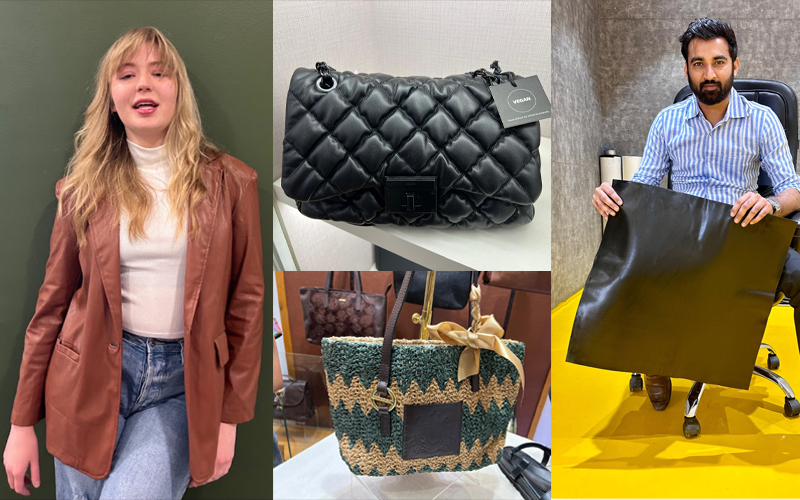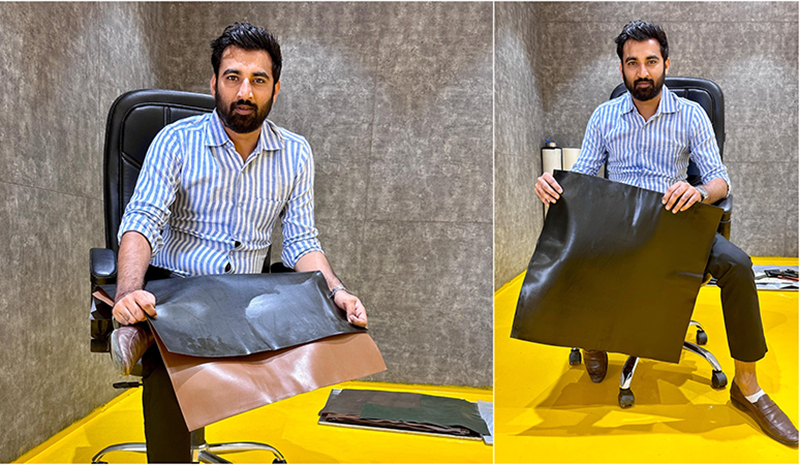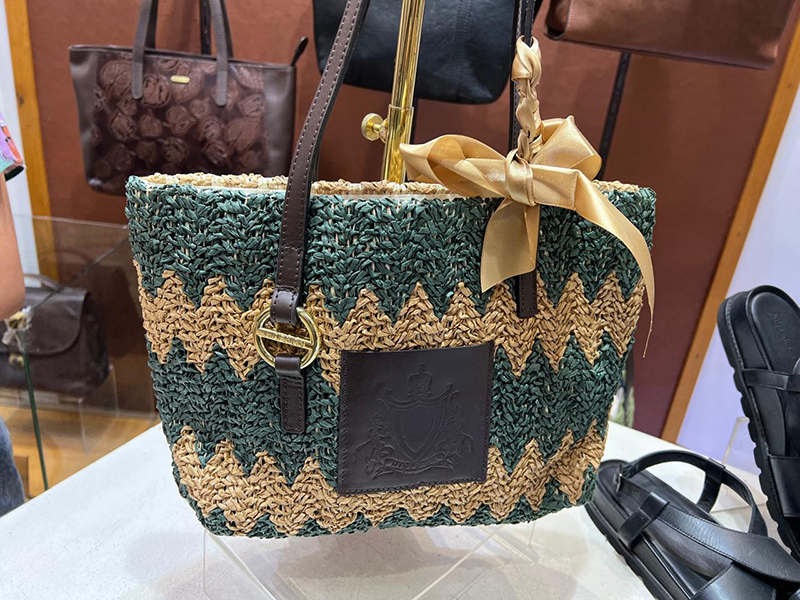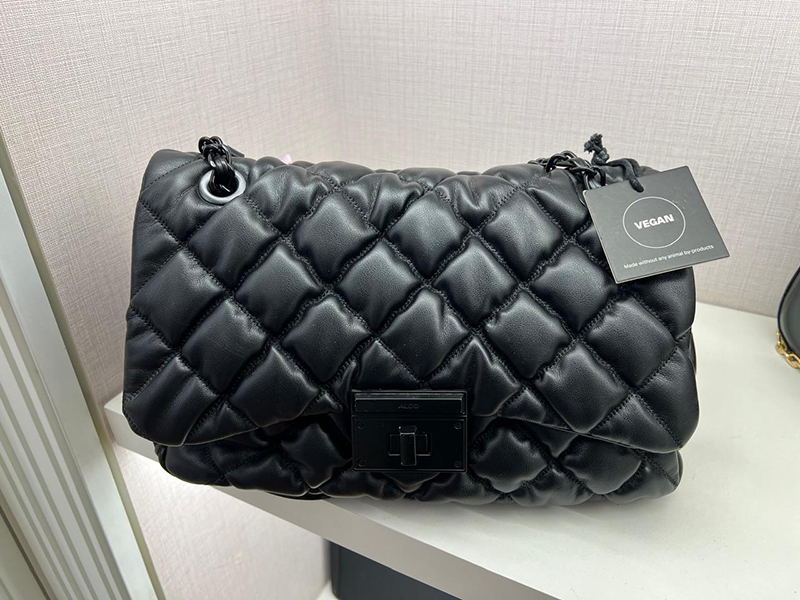 Vegan Leather
Vegan Leather
Vegan leather makes a compassionate fashion statement
The concept of vegan leather as a cruelty-free alternative to regular animal skin leather is emerging as fast fashion is being replaced by sustainability and compassion in both India and the US. Leather however is a dominant textile in both countries, so their technique for creating vegan fabric looks very different. Wura Layiwola, Nikki Baerson, Isabelle Marak, Jocelyn Peshia, Jamie Maron from the US and Supriyo Hazra and Yogesh Tyagi from India report on the trend
In Gujarat, India, Pratik Dadhania, uses mango waste to produce a vegan version of leather.
The founder of Aamati Green Private Limited considers it an innovative solution “not just for the sake of business, but for the betterment of our planet and society.”
"The process begins by collecting mango waste,which is typically discarded in mango farms, and converting it into a viscous liquid substrate which then undergoes a controlled fermentation process. During this stage, the fibrous content of the mango waste is broken down enzymatically," informed Dadhania.
"The enzymatic breakdown and subsequent molecular activities lead to a cascading chain reaction.This reaction results in the formation of a polymer matrix. This matrix is engineered to closely replicate the structural and aesthetic properties of traditional leather, mimicking its texture, flexibility,and appearance," he shared, adding that each sheet of vegan leather, measuring one square meter, is derived entirely from mango waste products, making it an eco- friendly alternative to traditional leather.
 Pratik Dadhania, Founder, Aamati Green Private Limited, proudly displays the vegan leather his factory produces. Photo by Aamati Green
Pratik Dadhania, Founder, Aamati Green Private Limited, proudly displays the vegan leather his factory produces. Photo by Aamati Green
Like Dadhania, when Delhi-based Muskaan Mundhra decided to start her brand House of Serein, she was sure that the product should be cruelty free and plant based.
"When I did research on leather products during my undergraduate studies on brand management and saw the process based on killing animals, I knew I would not build a product based on cruelty to give a new definition to someone's wardrobe," said Mundhra, founder and creative head of House of Serein.
More than 8,000 miles away in Columbia, Missouri, in the US, vegan food truck owner Gina Overshiner loves the idea of such fabrics because she considers them sustainable and cruelty-free. “With vegan leather,” she said, “you can have those types of products without harming other creatures.”
Eco-conscious consumers and entrepreneurs like them are causing the emerging vegan leather market to surge worldwide. Valued at $60.4 million last year, according to Vantage Market Research, it's expected to reach over $130 million by 2030. It’s part of a larger trend toward sustainable fashion that has led more designers and brands to incorporate plant-based and recycled materials into their collections.
Besides consumer interest, regulations are helping drive this trend. Some "fast fashion" brands and fashion supply chains could soon face scrutiny and new sustainability rules according to a recent report by the Business of Fashion. In California, a recently passed law will require certain large fashion companies to report their yearly emissions starting in 2026. It’s the first such law in the U.S.
GROWING MARKETS
India, a country with a rich textile tradition, is the fourth-largest exporter of traditional leather globally, according to Invest India, producing about 3 billion square feet of leather a year. But experts say it’s also at the forefront of the sustainable fashion movement as people become more aware of animal safety issues and the environmental impact of animal agriculture.
According to Pratik Dadhania of Aamati Green Private Limited, each of the 25-odd companies has exclusive processes and manufacturing technologies that are unique in a highly commercial market like animal leather and synthetics, valued at around $247 billion and $39 billion, respectively.
“My background in a family business manufacturing reactive dyes for the textile industry made me acutely aware of the environmental impact of chemical production.
“Motivated to make a positive change I turned my focus towards sustainable alternatives and delved into researching plant-based leather during my time in Paris,” he said.
Mundhra of House of Serein said plant-based vegan leather is gaining popularity because Covid made people more ecologically aware and they wanted to improve their lifestyle.
"When we talk of cruelty free leather it means Rexine and plant based material. However, plant based leather production is going up at a steady rate and in the next five years it will multiply manifold," she said.
"Besides online and retail sales, we get better response when we hold exhibitions and buyers can feel the product and find it equivalent to animal skin leather," she said, adding that the buyers' profile in India is from a 12-year-old to an elderly of 65 who buy vegan product because they understand the concept and the cause behind it.
A spokesperson for PETA India said Indian brands such as Lusso Lifestyle and Ethik, among others, are manufacturing their products using vegan leather.
“These days, (products can be) made from cork, banana stems, apple, cactus and other plants, to create leather-look shoes, handbags, belts and jewelry,” said Ashima Kukreja, chief corporate liaison for PETA India, an animal rights non-profit organization.
Household brands are following the vegan leather trend as well.
 University of Missouri student Aiyana Massie models a H&M synthetic leather jacket in her apartment lobby. H&M participates in the Leather Working Group, which sets standards for the production of leather goods and partners with the World Wildlife Fund and Textile Exchange. Photo by Team Mizzou
University of Missouri student Aiyana Massie models a H&M synthetic leather jacket in her apartment lobby. H&M participates in the Leather Working Group, which sets standards for the production of leather goods and partners with the World Wildlife Fund and Textile Exchange. Photo by Team Mizzou
“Crocs is now a vegan brand, and Volvo is moving toward being leather-free,” Kukreja said. “Recently Gucci collaborated with Billie Eilish to launch Horsebit 1955 bags crafted from the innovative animal-free material Demetra.”
Beyond the garage and the closet, the push towards vegan options also extends to the rest of the home.
In the U.S., Brentano Fabrics in Chicago is an example of this trend. The interior design firm uses sustainable leather instead of the animal option.
Michelle Gershkovich, a fabric specialist and sample department lead at the firm, said consumers are pushing for sustainability. In the interior design world and as a former fashion trend forecaster at Fashion Snoops, she’s noticed big changes in the demand from both sides of the market.
“We’ve been seeing a big rise in sustainable leathers rather than real leathers,” she said. “We get requests from designers that they only want vegan leathers.”
Aside from carrying lots of sustainable leather for its products, Brentano also participates in environmentally friendly initiatives with leftover fabric. As part of a “zero waste project,” for example, the company sent recycled fabric and patterns to Gershkovich’s alma mater, the University of Missouri, for its textile and apparel department to use for class.
BENEFITS OF VEGAN LEATHER
For many, the appeal of vegan leather is that it’s considered better for the environment and for animal welfare.
Animal agriculture contributes to deforestation, water and land overuse, pollution from manure, and methane emissions from cows, which play major roles in climate change. The Environmental Protection Agency says 1.5 billion cattle raised worldwide for consumption are responsible for at least 231 billion pounds of greenhouse gas-causing methane emissions yearly. Traditional leather is considered a “by-product” of beef cattle farming.
But vegan leather doesn’t have a spotless environmental record. Some common types are made from polyurethane or polyvinyl chloride, both of which are derived from fossil fuels. Production can be energy-intensive, and these materials don’t biodegrade easily.
Still, “it’s not as bad for the environment as animal leather,” said Ashley Byrne, PETA’s director of outreach communication. And vegan leather options keep improving, she added. “These companies keep innovating.”
 Vegan leather bags made from plant-based materials on display in a shopping mall in Noida on the outskirts of India's capital New Delhi. Photos by Yogesh Tyagi
Vegan leather bags made from plant-based materials on display in a shopping mall in Noida on the outskirts of India's capital New Delhi. Photos by Yogesh Tyagi
Options now include pineapple leather, apple leather, mushroom leather, and grape leather. There’s also a product called Miriam, a plastic-free vegan leather. As plastic production is detrimental to the environment, multiple companies are researching alternatives to seal the fabric.
“There are companies like Von Holzhausen who’ve just come out with a coating that you can use that is totally plastic-free,” Byrne said. Von Holzhausen is a leather bag, tech and car accessory and furniture company started by a former Audi designer.
Often, Byrne said, animal leather is coated in plastic as well.
PETA India said increasing the production of vegan leather helps combat animal cruelty – including the mistreatment of cows, which are sacred in Hinduism – and prevent environmental damage. Various Indian organizations are making technological strides to further those goals.
“The National Institute for Interdisciplinary Science and Technology in Thiruvananthapuram has developed vegan leather from agricultural waste,” Kukreja said. “Also, the Chennai-based Central Leather Research Institute has also developed a technology to make leather-like products using plants.”
By using different sources like agricultural waste, plant products, and mango pulp, both countries are making significant strides toward sustainable and cruelty-free fashion.
“The consumer wants to be sustainable. Sustainable designers are looking to cater towards that need and want, so that they can say, ‘Like, oh, everything here is sustainable,’ ” Gershkovich said. “(Designers) are steering clear away from anything that could potentially upset other people.”
THIS is what leather bags do to cows & our earth 😢
— PETA (@peta) April 21, 2024
Leather from cows’ skin has nearly 10x the negative impact of pineapple leather & nearly 6x that of synthetic vegan leather!
Every time you buy leather, you’re adding fuel to the climate catastrophe. https://t.co/jQbgwQaBH9 pic.twitter.com/UWbfR32iNN
But sustainable fashion is not quite the norm across the world - at least not yet.
Jana Hawley, dean of the College of Merchandising, Hospitality and Tourism at the University of North Texas, studies what brands are doing to become more sustainable.
“There are really only a handful of companies that are truly doing it the right way,” she said. “The rest of them know that they need to. They don’t have a clue on how to get started.”
Hawley emphasized the importance of entrepreneurship, since it can be difficult for established companies and brands to change quickly, while new businesses can create sustainable fashion immediately and learn how to navigate the markets as they become established.
“A change in consumer behavior is also key to sustainability,” Hawley said. Consumers need to learn that it’s OK to wear something that is rented or second-hand, she said, and companies need to learn how to present aftermarket goods so that they have a broad appeal.
She said greed is the main reason brands are not changing their practices; companies worry that if they add more sustainable practices, profits may dip.
 Vegan leather bags made from plant-based materials on display in a shopping mall in Noida on the outskirts of India's capital New Delhi. Photos by Yogesh Tyagi
Vegan leather bags made from plant-based materials on display in a shopping mall in Noida on the outskirts of India's capital New Delhi. Photos by Yogesh Tyagi
Ultimately, Gershkovich said, they may realize just the opposite as customers become more aware of how traditional fashion affects the environment.
“They’re really starting to wake up,” she said. “And that’s where we see a lot of brands that are trying to cater to customer’s needs.”
(This report is a cross-country collaboration between the students from the Business Journalism department of the University of Missouri, USA headed by Prof. Randy Smith, and young journalists from India. The project is overseen by Laura Ungar, reporter on the global health and science team at The Associated Press, and journalist Sujoy Dhar, founder of the Indian news agency India Blooms News Service.)
Support Our Journalism
We cannot do without you.. your contribution supports unbiased journalism
IBNS is not driven by any ism- not wokeism, not racism, not skewed secularism, not hyper right-wing or left liberal ideals, nor by any hardline religious beliefs or hyper nationalism. We want to serve you good old objective news, as they are. We do not judge or preach. We let people decide for themselves. We only try to present factual and well-sourced news.







